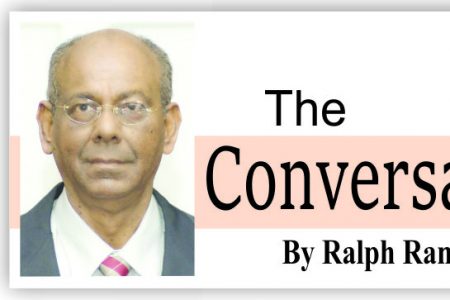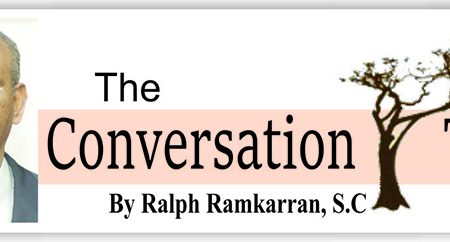No free pass
I congratulate the PPP/C on its electoral victory and Dr. Irfaan Ali on his inauguration as the President of Guyana.
I congratulate the PPP/C on its electoral victory and Dr. Irfaan Ali on his inauguration as the President of Guyana.

Slavery of African people in the era of colonialism was the worst and most enduring holocaust in recorded human history.
There can be no doubt that with the end of the road approaching, the APNU+AFC coalition is in a mess.
Guyana has achieved the dubious distinction of taking the longest time to announce election results and of having the largest number of court cases concerning elections between the commencement of the voting and the declaration.

By the time this column appears today, the issue of Mr Keith Lowenfield’s report to the Guyana Elections Commission would have been determined.

President Granger’s undertaking to accept the declaration of the election results by GECOM leaves Guyana with the hopeful expectation that the election ‘torment’ will soon be over.

Over the past few days, Barbados Prime Minister and Chair of Caricom Mia Mottley accused Keith Lowenfield, our Chief Election Officer, of “gamesmanship.”

APNU will not succeed in its efforts to reverse the results of the recount; and shared governance will not be achieved by the light touch of a Madame Chancellor/President or on the rubble of burnt out ballot boxes.
Guyana, and indeed the world, has moved on in significant ways since June 13, 1980, when Walter Rodney was assassinated.

The recount winds down amidst the 40th Anniversary of the assassination of Walter Rodney, one of Guyana’s most prominent and courageous fighters for democracy and free and fair elections.
Cynicism in relation to elections in Guyana did not begin with the debate as to whether the majority of 65 is 33 or 34 in relation to the no confidence motion passed against the APNU+AFC Government by the National Assembly on December 21, 2018.

While the political atmosphere is still heavily laden with gloom, it was somewhat lifted by President Granger’s statement last week that the Government will accept ‘any declaration’ made by GECOM pursuant to the recount.
As the week ended, a clear strategy by APNU+AFC appears to be emerging.

The President and Leader of the Opposition agreed on a recount.
Dear Distinguished Caricom Observer Team: Messrs Cynthia Barrow-Giles, John Jarvis and Sylvester King.

The jury is still out on whether the Guyana Elections Commission (GECOM) will deliver credible election results, notwithstanding the widespread demands of the international community and a broad cross-section of Guyanese.
Interest in “Ian on Sunday” of April 12, (“Everything is interesting,”) attracted not only my attention but that of SN’s editorial writer last Friday, days after I had completed this effort.

The daring absurdity of the 156-day plan for the recounting of the ballots of the March 2 elections begs the question of what exactly goes on at meetings of the Elections Commission.
It will not be until 11 am today that the Guyanese public will know whether a recount by GECOM is going to take place soon, or at all.

The headline is not an original formulation. It is partially borrowed from the late Miles Fitzpatrick, then a columnist in the Stabroek News.
The ePaper edition, on the Web & in stores for Android, iPhone & iPad.
Included free with your web subscription. Learn more.